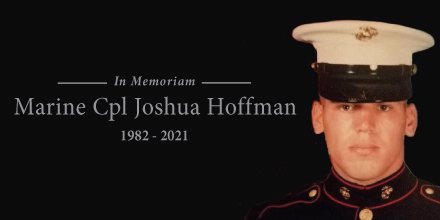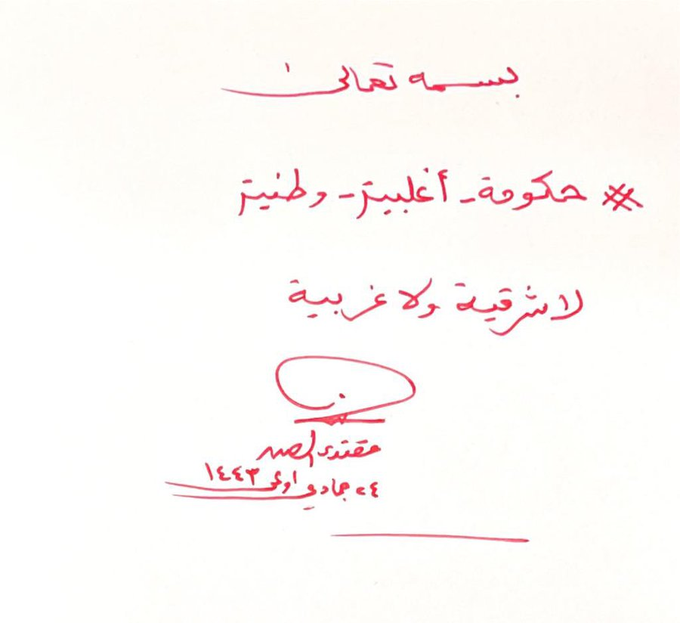Paris Marx has an important piece on Spider-Man films -- not just the most recent one. This is from the article:
In the beginning of director Sam Raimi’s 2002 Spider-Man, Uncle Ben and Aunt May are in the kitchen of their working-class home in Queens discussing their finances. After thirty-five years, Ben has been laid off from his job as a senior electrician because, as he says, “the corporation is downsizing the people and upsizing their profits.” May reminds him they’ve had tough financial patches in the past, and they’ll get through this one too.
This scene roots the story of Spider-Man in a working-class household, and it’s a constant feature in his life and the lives of those he cares about. Maguire’s Peter Parker does all manner of jobs to make a bit of money, such as participating in a wrestling match, selling photos of himself as Spider-Man, and even delivering pizza in the second film. Meanwhile, his neighbor (and longtime crush) Mary Jane Watson (Kirsten Dunst) has to wait tables at a diner as she tries to become a stage actress.
They’re not rich people, and their finances shape their stories throughout Raimi’s trilogy. Raimi shows us how Daily Bugle editor J. Jonah Jameson bullies Peter into accepting meager pay for his Spider-Man photos while Mary Jane’s boss berates her after her shift. At home, Peter’s landlord snatches the $20 his aunt gave him for his birthday right out of his hands, citing back rent, while the bank refuses to do anything to help Aunt May refinance her home, forcing her to move out. But while the “good” characters are under the foot of capitalists, the same can’t be said for the first villain of Raimi’s trilogy.
Norman Osborn (Willem Dafoe) is an incredibly wealthy man who runs Oscorp, a chemical company and military contractor. He’s also the father of Peter’s best friend, Harry, and while he initially presents himself as someone Peter can trust, he becomes Spider-Man’s chief adversary when he inhales a performance-enhancing chemical and becomes the Green Goblin. After trying to kill Peter and threatening the lives of Mary Jane and Aunt May, Osborn eventually kills himself after miscalculating an attack on Spider-Man.
Here in Raimi’s original trilogy, the wealthy CEO is no hero and Peter pays a heavy price for his proximity to the billionaire Osborn. It’s a far cry from how Marvel’s Kevin Feige frames the story of Holland’s Spider-Man and his mentor, the charismatic superhero billionaire Tony Stark (aka Iron Man).
It's an important article and it will really make you think.
Going out with C.I.'s "Iraq snapshot:"
A West Michigan Marine who was paralyzed in Iraq died Monday at the age of 39 due to complications from his injury.
“He was an inspiration to all of us,” said Bill White, friend of Marine Cpl. Joshua Hoffman.
The Hastings resident was paralyzed by a sniper’s bullet while fighting in Iraq in 2007.
“Shots rang out and they all hit the ground and so did Josh,” White said. “But Josh got shot through the back of his neck.”
Hoffman grew up in the Wayland area and joined the Marine Reserves in 2002, hoping to earn money for college. He planned to be a pilot.
He was part of the Grand Rapids-based Alpha Company, 1st Battalion, 24th Marine Regiment. He was sent to Iraq’s Anbar province in October 2006, where he was attached to the battalion’s Weapons Company in Fallujah.
Cpl. Hoffman was hit in the early morning of Jan. 6, 2007, as he pursued an insurgent. The bullet entered his neck and exited his shoulder blade, shattering his upper spine.
It’s 6 p.m. and the pink-tinged skies turn black above Agolan, a village on the outskirts of Erbil in the Kurdistan region of northern Iraq. Thick plumes of smoke have begun to billow out of dozens of flaring towers, part of an oil refinery owned by an Iraqi energy company called the KAR Group. The towers are just about 150 feet from where 60-year-old Kamila Rashid stands on the front porch of her house. She looks squarely at the oil plant, which sits on what she says used to be her family’s land.
Rashid was born here, like her parents before her and her children after her. She says when KAR moved into the area, residents traded their land for KAR’s promise of jobs and reliable, less expensive electricity for the village. The land was handed over, Rashid says, but she maintains that KAR never provided the promised electricity or long-term jobs.
The towers, also called flare stacks, are used by oil refineries across the globe to burn the byproducts of oil extraction. Such flaring releases a menagerie of hazardous pollutants into the air, including soot, also known as black carbon. “The smoke coats our skin and homes with black soot,” says Rashid. Many villagers keep their windows shut and try to remain indoors whenever possible.
Iraq’s sky now rains dust and pollutants. The land between the Tigris and the Euphrates no longer gets enough rain to save the country from droughts, which have devastated local communities and agricultural supply chains, spurring a tide of migration.
The situation has deteriorated rapidly over the past two decades, with Turkey and Iran restricting the flow of water via dams and other infrastructure. Water has effectively been transformed into a political tool, while sand and dust storms are becoming more frequent across Iraq; it has been estimated that the country could experience 300 such storms a year by 2023.
Today, as Iraq celebrates the centenary of its founding as a modern state, its ecosystem is on the verge of collapse. As water flows in rivers decline dramatically, Iraq is expected to become one of the world’s most water-stressed countries by 2040, with a forecasted rating of 4.6 out of 5, indicating extremely high stress. At the same time, Iraq is contributing to global warming, with the International Energy Agency reporting that the country accounts for around eight percent of world methane emissions.
Iraq’s environment ministry has acknowledged the ongoing climate crisis, which threatens to make Iraq unliveable over the next two decades due to excessive heat, drought, scarcity of water reserves, desertification and loss of biodiversity - all of which are wreaking havoc on food security chains.
Oh well, the really corrupt already have homes outside of Iraq, so they'll just leave the country when things get too bad. It's not like they ever cared about the Iraqi people, after all. Tehir actions while in power made that perfectly clear. If they're not going to work to improve the present lives of the Iraqi people, why should the corrupt worry about the future of the Iraqi people?
WHich brings us to the zaftig Moqtada al-Sadr, the Shi'ite cleric who never a mumu or caftan he didn't decide to buy on eof in each color. Mina Aldroubi (THE NATIONAL) reports:
Iraqi populist cleric Moqtada Al Sadr said on Wednesday his country will form a national government free of external influences after the ratification of election results that confirmed gains for the Shiite leader.
Mr Al Sadr's coalition secured 73 of the Parliament's 329 seats in the national elections, gaining more than any other party and up from 54 in 2018 polls.
“In the name of God ... a government of national unity, neither eastern nor western,” Mr Al Sadr said on Twitter after meeting with leaders of the Iraqi Co-ordination Framework, the umbrella group of Shiite parties contesting the election’s results.
Amnesty
The human rights organization International Amnesty (AI) called a “parody of justice” the decision of the High Court of London to authorize the extradition to the US of Assange. “It is a parody of justice … The court decided to accept the incorrect assurances of the United States that Assange would not be subjected to solitary confinement in a prison with harsh prison regime,” declared AI director for Europe, Nils Muiznieks.
The eventual extradition of Julian Assange to the United States jeopardizes the principles of media freedom, said a spokesman for the International Federation of Journalists. Assange’s extradition to the United States would endanger not only his life, but also the fundamental principles of freedom of the press. The association will support any effort by Assange’s legal team to challenge this court ruling, “the spokesperson said.
Two years later, Washington Post reporter David Finkel published The Good Soldiers, a book based on his time embedded in the 2-16 battalion.
Finkel was with the soldiers in the al-Amin al-Thaniyah neighbourhood when they heard the Apache helicopters in action. He defended the U.S. military, writing that “the Apache crew had followed the rules of engagement” and that “everyone had acted appropriately.” The soldiers, Finkel wrote, were “good soldiers, and the time had come for dinner.”
In his recounting, Finkel made it clear that he had watched a video of the incident, even as the U.S. government denied its existence to Reuters and to human rights organizations.
On Jan. 5, 2010, Chelsea Manning, a U.S. soldier in Iraq, downloaded a tranche of documents and videos pertaining to the war onto compact discs and took them back with her to the United States.
On Feb. 21, 2010, Manning passed on the material related to Iraq to the WikiLeaks organization, which had been set up in 2006 by a group of engaged people led by an Australian national by the name of Julian Assange.
WikiLeaks and Assange went through the footage and published the full video from the Apache helicopters on their website under the title “Collateral Murder” on April 5, 2010.
In 2010, McCord told Wired’s Kim Zetter what he had witnessed:
“I have never seen anybody being shot by a 30-millimetre round before. It didn’t seem real, in the sense that it didn’t look like human beings. They were destroyed.”
In the van, McCord and the other soldiers found Sajad Mutashar (age 10) and Doaha Mutashar (age 5) badly injured; their father, Saleh was dead on the ground.
In the video, the pilot saw that there were children in the van; “Well,” he said callously, “it’s their fault for bringing kids into a battle.” When WikiLeaks released the video, then 12-year-old Sajad Mutashar said, “I want to get our rights from the Americans who harmed us.”
His mother, Ahlam Abdelhussein Tuman, said, “I would like the American people and the whole world to understand what happened here in Iraq. We lost our country and our lives were destroyed.” They were met with silence. Sajad, who recovered partly from his injuries, was killed by a car bomb in Baghdad in March of 2021.
Robert Gibbs, press secretary for former U.S. President Barack Obama, said in April 2010 that the events depicted in the video were “extremely tragic.”
But the cat was out of the bag. This video showed the world the actual character of the U.S. war on Iraq, which United Nations Secretary-General Kofi Annan called illegal.



